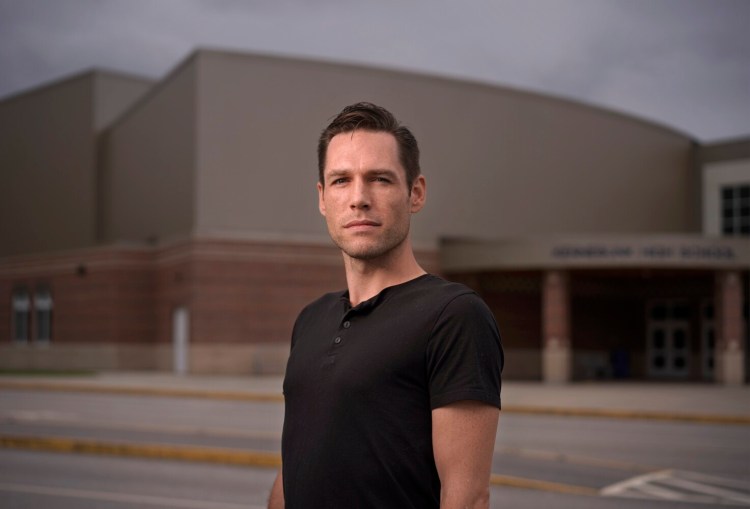Second in a series
David Morgan was a 17-year-old senior at Kennebunk High School on Sept. 11, 2001. Teachers wheeled a television into his classroom and he watched the towers fall. Afterward, he walked the halls in a daze, repeating a thought he couldn’t abide, but knew to be true: “We’re going to war.”
Like all Americans, Morgan wanted al-Qaida brought to justice. And he wasn’t naive enough to believe that could be done without force; he and his friends thought Osama bin Laden should be captured and brought before an international court. But he feared that a full-scale war and a long-term occupation in Afghanistan would only lead to more civilian deaths and serve as a recruiting tool for extremists.
So he and some friends planned a series of protests around Kennebunk. Outside the gazebo at Rotary Park, Morgan played a recording of Jimi Hendrix’s rendition of “The Star-Spangled Banner” and observed a moment of silence for the victims of the attacks.
“I was saddened by the recent events in New York City and the almost immediate military response we got from our government,” Morgan said at the time. “There definitely is a way we can deal with this without killing innocent people. More pain and suffering on a larger scale would be detrimental to society as a whole.”
His own parents were and are conservatives who disagreed with his stance on the war on terror, Morgan said. But they raised him to defend his convictions.
“We raised him to be nonviolent and be a peaceful person,” his mother, Jean Morgan, said at the time. “The military response goes against what he believes in.”
Many of his classmates were supportive, despite the strong public push for war following the attacks. In history class, however, Morgan and other students argued over the necessity for war, eventually growing heated enough for their teacher to call a halt. Later, the two made peace.
Otherwise, aside from a few negative letters to the editor, he largely avoided any backlash to his calls for peace.
Now, watching a chaotic U.S. withdrawal in Afghanistan, Morgan is skeptical that anything has been gained from two decades of war.
“Here we are, 20 years afterward, and the flag’s at half-mast,” he said, gesturing toward the American flag outside Kennebunk High, lowered after the deaths of 13 service members in a bombing in Kabul. “We’re no safer than we were before 9/11 or immediately afterward.”
He added later, “We’ve ditched our civil rights, we’ve had our kids come home in body bags, we’ve gone completely outside our laws, we haven’t healed (from the 2001 attacks), and we’ve lost ourselves in the process.”
Even so, Morgan had mixed feelings about the recent U.S. withdrawal, which has left the Taliban in charge of the country. He wasn’t sure he agreed with President Biden’s position, in announcing the end of the war, that the U.S. “did not go to Afghanistan to nation-build.”
“We do have some responsibility to the people we invaded,” Morgan said.
It hasn’t all been for nothing, though. For Morgan, personally, a drive to “fix the messes of the world” led him to become a climate change researcher. And his teenage activism introduced him to his future wife, Greta Hagen, a contemporary at Kennebunk High School.
The couple met after September 11, dated through college, married, and now have a 2-year-old son, Rhys. Soon after meeting each other, they made a sign together outside their high school. It said, “Give Peace A Chance.”
Read Sunday’s profile: Ticket agent struggles with guilt, trauma over two decades
Coming Tuesday: Army reservist knew his life had changed
Send questions/comments to the editors.



Comments are no longer available on this story